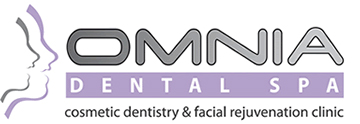 £
Birmingham
01564 822224
Omnia Dental Spa
£
Birmingham
01564 822224
Omnia Dental Spa
 I had a bad experience at my previous dentist and Omnia Dental Spa was recommended to me.
I had a bad experience at my previous dentist and Omnia Dental Spa was recommended to me.
AJ
Tooth decay is an entirely preventable condition, yet most people have experienced some tooth decay by adulthood. At Omnia Dental Spa we aim to prevent tooth decay and the associated discomfort, inconvenience and expense, through education, advice and professional care. Our experienced dentists use magnification, powerful lighting and dental x-rays to ensure that any cavities (holes caused by tooth decay) are detected early and treated in an appropriate and timely manner.
What causes tooth decay?
Tooth decay occurs when sugars in food and drinks interact with the bacteria in plaque, forming acids. Every time you eat or drink anything containing sugars, the resulting acids attack the teeth and start to soften and dissolve the enamel. The attacks can last for up to an hour after eating or drinking, before the natural salts in your saliva cause the enamel to 'remineralise' and harden again. It's not just sugars that are harmful, other types of carbohydrate foods and drinks also interact with plaque bacteria and form acids. These are the 'fermentable' carbohydrates such as the 'hidden sugars' in processed food, natural sugars like those in fruit, and cooked starches.
Snacking between meals on sugary or acidic foods and drinks can significantly increase the risk of decay, as the teeth come under constant attack and do not have time to recover. It is therefore important not to keep snacking on sugary foods or sipping sugary drinks throughout the day.
Please refer to our Preventative Care – Top 10 Tips for more useful information on how to take care of your teeth and gums.
What are the signs and symptoms of tooth decay?
In the early stages of dental decay there are no symptoms, however, the cavity (hole) will continue to deteriorate and will eventually become sensitive and cause you discomfort when eating and drinking.
At Omnia Dental Spa, through the use of magnification and powerful lighting, we aim to detect any cavities at an early stage in order to minimise the damage to your teeth. When cavities are small, they are much easier to treat and therefore less expensive to restore.
As early tooth decay does not show many physical signs, and the tooth may look healthy to the untrained eye, your dentist will be able to use x-ray imaging to determine whether you have any decay under the enamel or between the teeth. In addition, x-rays can also help to diagnose root infections and any bone loss around the teeth.


 FREE Invisalign consultations available! Call us today to reserve your appointment
FREE Invisalign consultations available! Call us today to reserve your appointment FREE Boutique Whitening kit with every Invisalign treatment - Love your smile
FREE Boutique Whitening kit with every Invisalign treatment - Love your smile
